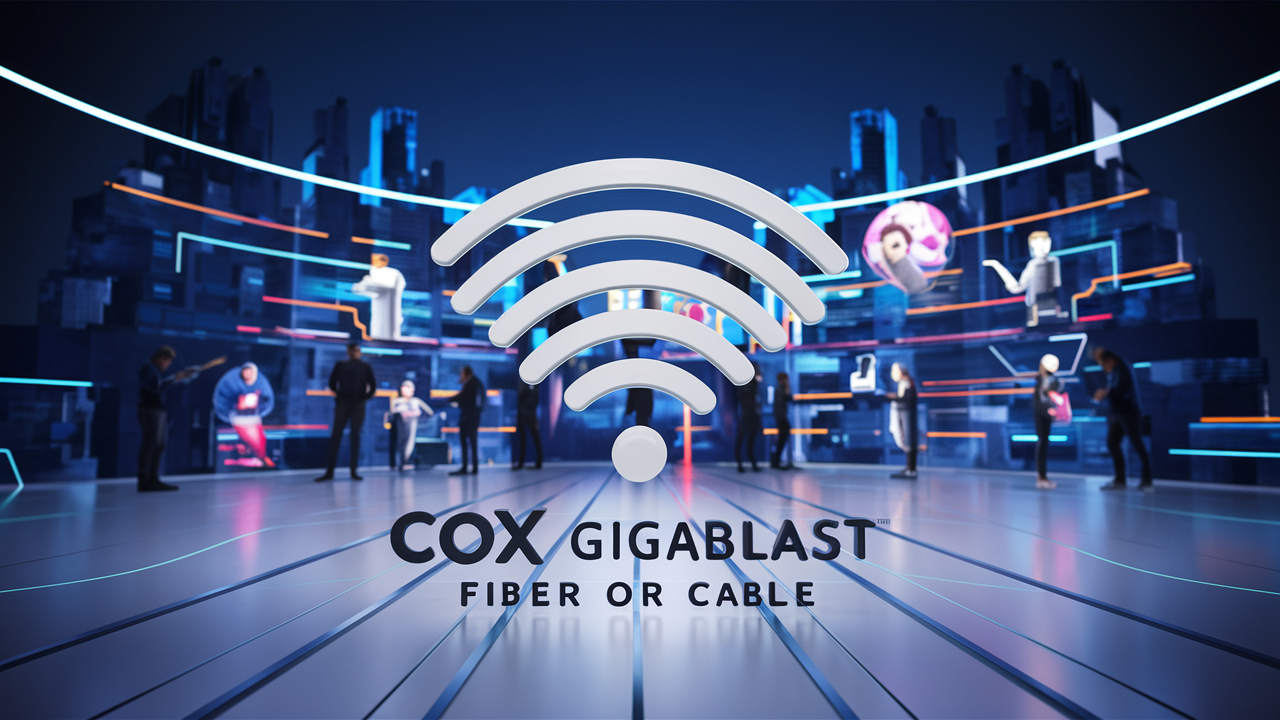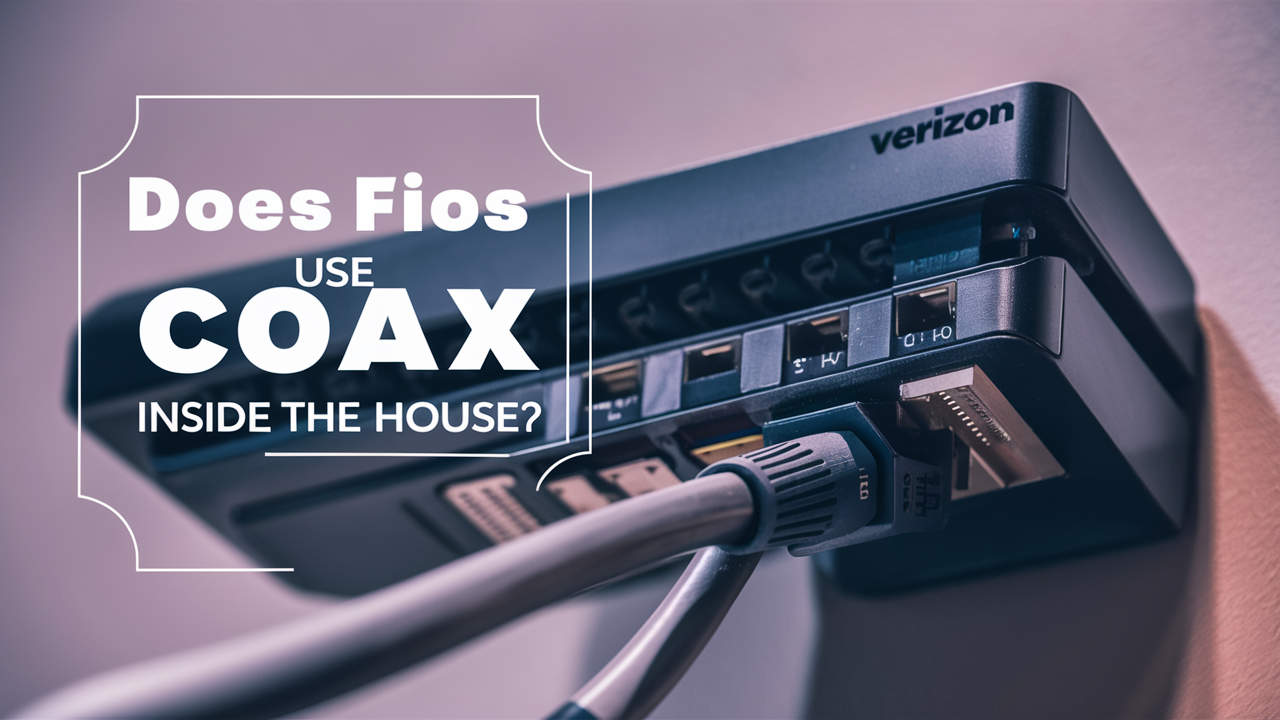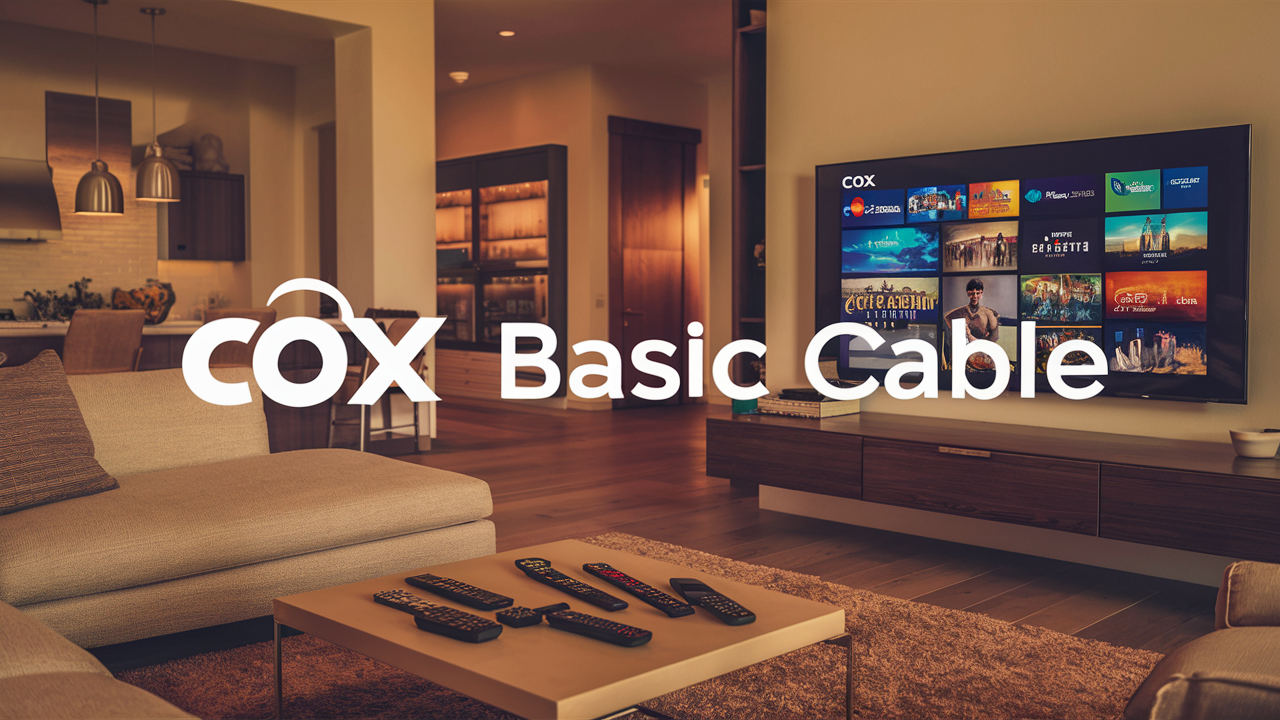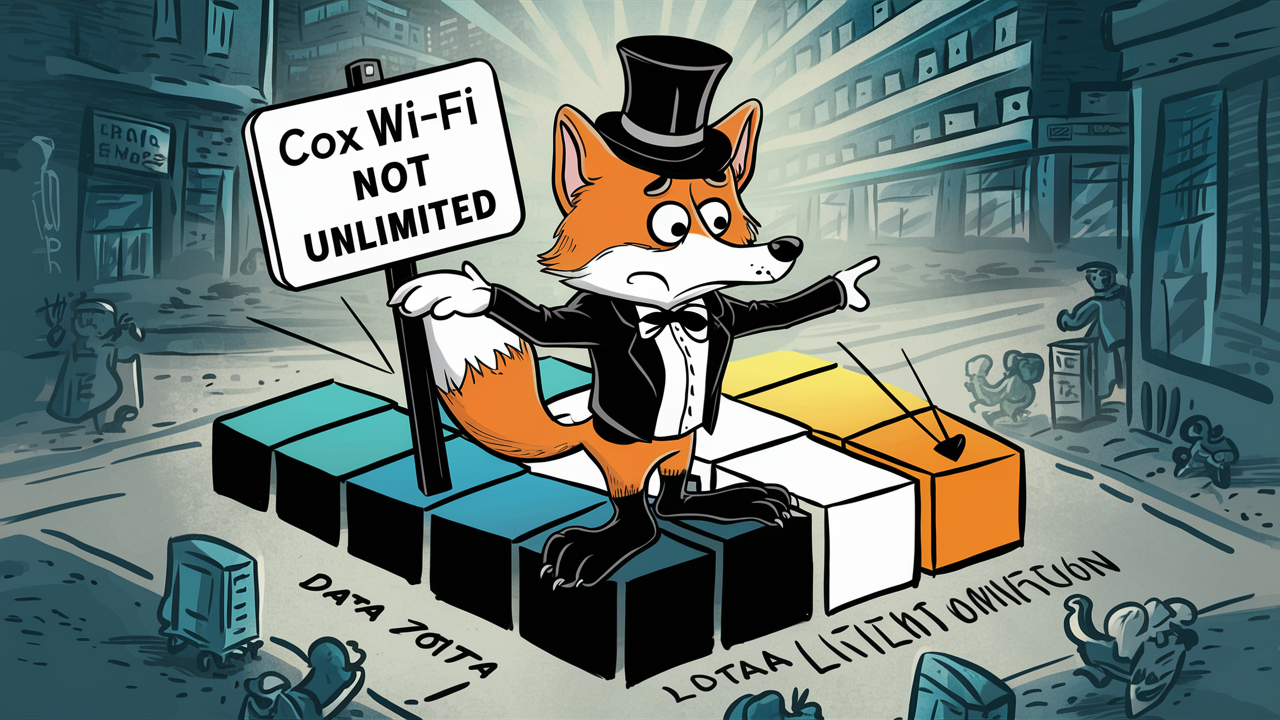Is Cox Gigablast Fiber or Cable?

As of now, the fastest internet plan that Cox Communications provides is known as Gigablast. This is a super-fast internet service provider with an Internet speed of up to 1Gbps or 1000Mbps. That means it only takes 0.35 seconds to download one MB of data, or 36 seconds to download a one-hour, High Definition movie.
However, one may want to know whether Cox Gigablast uses fiber optic technology or a normal coaxial cable. Some controversy has arisen over the nature of Gigablast service, whether it is over fiber or uses fiber-like cable infrastructure to deliver those incredible velocities. In this article, the technology of Gigablast and the factors that determine whether it can be classified as fiber or cable internet will be explored.
The Short Answer
Cox Gigablast is a type of internet for cables, not fiber. Specifically, it takes advantage of Cox’s hybrid fiber-coaxial network and the DOCSIS 3.1 technology to offer download speeds of up to 1 Gbps. However, Gigablast is not a fiber-to-the-premises (FTTP) service, although it is significantly faster than VDSL.
The Cox Network Technology
As to why Gigablast is not fiber, one must look at the existing Cox network for a little to get a glimpse. Cox has a broadband network that is a HFC network, hybrid fiber-coaxial.
This network employs both the fiber optic cables and the regular coaxial cables of the type that are utilized in the television cables. This is a high-speed backbone that interconnects Cox facilities through the application of fiber optic lines. This makes it possible to transfer huge amounts of data within different sites.
The link to different individual homes and businesses is required to be established through coaxial cables that are already in place. These are the same cables that currently offer cable TV and the first-generation broadband internet to Cox users. Although the Cox network already has high-capacity fiber, the last few miles to connect buildings use coax cable infrastructure, which is not as modern.
To deliver Gigablast speeds on the current infrastructure, Cox has enhanced a new DOCSIS 3.1 cable modem across its networks, along with fiber optics.
What is DOCSIS 3.1?
DOCSIS is abbreviated for Data Over Cable Service Interface Specification. This is the European technical standard that means that the cables already used for cable TV may also provide Internet connectivity.
Each version of DOCSIS helps to provide broadband connection speeds with the help of efficient use of the available bandwidth of the cables. DOCSIS 3.1 is the most recent type and supports gigabit broadband connections.
To explain the new high speeds, which are Download speeds of up to 1 Gbps and Upload speeds of up to 500 Mbps, it can be said that putting in new DOCSIS 3.1 equipment in the network and also upgrading the customer’s modem to DOCSIS 3.1, the firm can provide these new high speeds over the fiber-coaxial network.
Therefore while Gigablast means a dramatic increase in internet speeds for those who are under Cox, this does not mean putting fiber optic cables directly into the people’s homes. It expands on the existing network and uses the state-of-the-art DOCSIS 3.1 cable modem technology to get more bandwidth out of the cables already present.
Fiber Optic Internet Explained
While a hybrid fiber-coaxial network installation that Cox has already implemented today is different, the true fiber optic internet connection utilizes fiber optic cables for the whole connection between the provider and home, not within facilities only.
Since fiber uses light signals instead of electric signals through copper wires and effectively transmits data through silvery or plastic threads, the fiber can easily support significantly higher bandwidths with greater speeds and minimal delay. Fiber internet comes with equal upload and download speeds of up to 10 Gbps in some locations, while cable internet features asymmetrical speeds.
However, fiber optic cables laid from the curb to customers’ premises or even homes, referred to as fiber-to-the-premises (FTTP) or fiber-to-the-home (FTTH) involve infrastructure investment. It is for this reason that the availability of residential fiber connections has in the past been a preserve of a handful of select few.
For cable Internet service providers such as Cox that already have a dense cable infrastructure in place, the upgrading of the existing cable modem technology to allow for the necessary multiple gigabit per second speed is cheaper than having to replace the current cabling infrastructure with fiber optics. However, a few providers are gradually offering real fiber in addition to the cable Internet.
Is Cox Gigablast Still Worth It If It’s Not Fiber?
However, the fundamental disadvantage of Cox Gigablast is that, unlike many of today’s modern television providers, it is distributed through coaxial cables instead of fiber-optic cables. To clarify, cable internet is always ‘’best’ for receiving data as opposed to sending it, and thus, its upload speed maxes at 35 Mbps on Gigablast while its download speed hits an impressive 1 Gbps – which is what most people mean when they say that a certain package is ‘’Gigablast.
That is, cable internet is generally less consistent compared to fiber optics with stable connections that do not fluctuate based on current network traffic and other factors. The final characteristic of coaxial cable internet structure, which users may encounter, is the fact that it is a shared connection that can be slow with neighbors.
But for the average user who uses the internet in their house, the speeds offered by Gigablast should still be a dramatic upgrade. Watching 4K video streams, engaging in real-time online gaming, downloading large files, and managing multiple connected devices become almost seamless with download speeds of nearly one Gbps and fast upload speeds of 200 Mbps.
Cox Gigablast should provide fiber-like internet speeds over cable connections unless you have a use for symmetry like moving large data sets or if you need the same download and upload speeds. While some might argue that cable’s Gigablast is still far from being truly a fiber connection, the difference is hardly noticeable to most households in typical usage.
However, it is important to note that Gigablast does this while providing this game-changing speed boost at a price that is massively lower than the commercial fiber internet connections sold to firms. Cox shows that, download speeds common on Gigablast range between 500MB to almost 1GB across most of Cox’s service areas shown below.
Although not as future-ready or as sustainable as pure fiber, DOCSIS 3.1-fueled gigabit cable Internet service is more than capable and comes with the bonus of not needing to physically wire up homes with fiber. For the regions that are under Cox coaxial coverage, Gigablast is a giant leap to provide residential connections.
The Bottom Line
Consumers mustn't confuse Cox Gigablast with a fiber optic internet service. Instead, it employs newly upgraded equipment and DOCSIS 3.1 modem technology that can deliver up to 1 Gbps over the existing Cox hybrid fiber-coaxial cable network. It is as fast as it can get for almost all intents and purposes,b ut it’s not as balanced as fiber connections where there can be equal upload and download speeds or headroom to increase future speeds further.
However, for the overwhelming majority of households, the Gigablast service should bring a dramatic improvement in internet speeds and request processing in comparison with prior cable internet services. In case fiber equivalent symmetrical speeds and firm consistent performance are not needed, Cox users can have fiber-fast internet facilities without the fiber cables direct to their buildings.
Cox Gigablast with low latency and colossal bandwidth, made possible by DOCSIS upgrades built on existing fiber-supported coax cables, is the first to deliver true cable gigabit service in homes.
Ready to upgrade your internet experience? Call us now at +1 844-349-7575 to explore the best Cox Internet plans for your needs!





